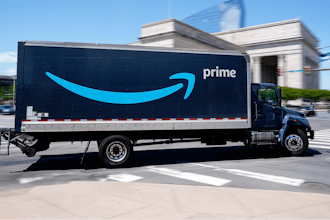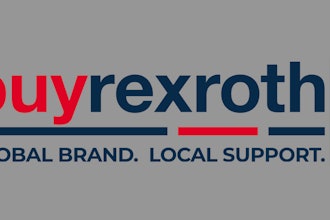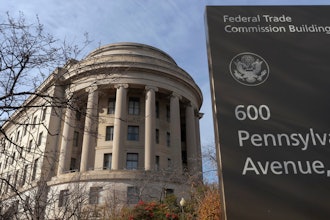
Can a distributor register as a protectable trade (or service) mark, a domain name with the United States Patent and Trademark Office (USPTO)? This question has wide-spread implications, including how distributors go to market, under what mark, and how they use their domain names in their marketing and branding efforts. On June 30, 2020, the United States Supreme Court, in United States Patent and Trademark Office, et. al. v. Booking.com, B.V. held that "Booking.com" was a registrable trademark. The opinion, itself, is unique, not only as it was the first case argued before the High Court by remote means but also because of it’s nearly unanimous ruling (only Justice Breyer dissented). While many practitioners view the ruling as the only reasonable interpretation of the law, many view the holding as having wide-spread implications, including a flood of businesses seeking registration with the USPTO of their domain names as marks used in commerce that identify goods (or services) with their company.
It is important to understand certain trademark "fundamentals" to put in context the holding in Booking.com. Dating past the enactment of the Lanham Act in 1946 (which Act governs registration and enforcement of marks used in commerce), to obtain protection by registration with the USPTO, marks used in competition must be capable of distinguishing the goods or services of one business as compared with another business. As to "word marks" (i.e., a standardized graphic representation of the name of a company, institution, or product name used for purposes of identification and branding), the law has recognized a spectrum of categories which impact the ability to register a wordmark with the USPTO: word marks may be (1) generic, (2) descriptive, (3) suggestive, (4) fanciful, or (5) arbitrary. On one end, generic marks (i.e., those that are a common name of the product) are never registrable. Registration of generic terms would stymie competition if a business could claim a protectable mark in names such as "cars" or "airplanes," to describe those products themselves, or any class of goods. In Booking.com the USPTO argued that the term "booking" was merely generic for an on-line hotel registration (which it is) and that the addition of the internet suffix .com did not turn it into a protectable brand name.
On the other end of this spectrum are arbitrary word marks, which have the inherent distinctiveness that connects in the minds of the consumer of the product(s) or service(s) that the provider is a particular source and are quite valuable. For example, "Apple" for computers and related technology; or "Camel" in connection with cigarettes. Neither describe products or services, but rather have become known to consumers as having a level of quality that has nothing to do with the subject products or services. Instead, arbitrary marks have acquired by use in the consumer's mind identification of the source of the goods or services, or what is referred to in trademark law as "secondary meaning."
In between these two extremes are wordmarks that are descriptive. "American Airlines" is inherently distinctive (i.e., having secondary meaning), yet is really the combination of two generic terms – "American" and "Airlines." When coupled together, however, they make clear what company is behind the product or service – whether air transport, credit cards, meal-deals, or otherwise. Here, booking.com was demonstrated in the courts to have secondary meaning – while admittedly (by counsel) a "weak" mark, the Supreme Court rejected the USPTO's efforts to establish a "per se" rule that "generic.com" is never a registrable mark (despite having allowed registration of ART.COM and DATING.COM, and stating in its USPTO examiner's handbook that singular domain names can be subject to potential registration).
In this case, the Supreme Court held that while booking.com was simply the aggregation of two generic terms, when coupled with survey evidence of secondary meaning (a common method to establish "consumer perception") the applicant established the mark as the source of the service as provided by Booking.com, B.V. Writing for the Supreme Court, Justice Ginsberg stated: "A term styled 'generic.com' is a generic name for a class of goods or services only if the term has that meaning to consumers. Consumers . . . do not perceive the term 'Booking.com' to signify on-line hotel reservation services as a class." In circumstances like those this case presents, a 'generic.com' term is not generic and can be eligible for federal trademark registration."
The following are key takeaways from the Booking.com case:
- Distributors should strongly consider adding to their "IP portfolio" a registration of their domain name; any brand blitz should inherently consider all possible IP protections, including marks that may now be perceived as "weak," one which may in three or five years be considered valuable.
- The ruling does not mean that every "generic.com" combination will automatically be subject to registration by the USPTO; domain name owners would need to prove that consumers recognize the combination as having acquired secondary meaning by survey evidence, extensive marketing, and similar tools used to evince consumer perception of a domain name wordmark. As Justice Breyer stated in his dissent, survey evidence may be an "unreliable indicator" of the "genericness" of a name.
- Unless the domain name mark has extensive secondary meaning, it is quite likely that the scope of protection of generic.com marks under the Lanham Act will be limited; not only because the owner will not be able to preclude fair use of terms like "booking," but also due to recognized defenses under the Lanham Act to the competitive use of generic marks. Other questions are likely to emerge in this post-domain registration era. What if a distributor does not have or own a domain name? What if someone else has registered and owns that name? Can one still claim trademark rights under these circumstances? What if an IP portfolio is sold or transferred – what rights will transfer with the portfolio?
 Fred Mendelsohn
Fred Mendelsohn
Fred Mendelsohn is a partner at Burke, Warren, MacKay & Serritella in Chicago. For those interested in the issues and thoughts raised by this article, Fred can be reached at 312-840-7004, [email protected], or on any number of video chat applications.
The information contained in this article is provided for informational purposes only, and should not be construed as legal advice on any subject matter. The author expressly disclaims all liability in respect to actions taken or not taken based on any or all the contents of this article.






















